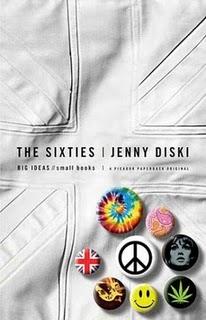The Sixties

Jenny Diski gave me more to contemplate in 134 pages of The Sixties than I could manage to willfully squeeze out of the last piece of popular literary fiction I read. It is clear after only a few sentences that Diski is a writer worth her salt, and why she was the one chosen to handle this topic.
Often the sixties are romanticized to the point of obscurity, those who lived through them trying to weave fame, and infamy, out of their psychedelic experiences. But it was also a time of astounding idealism, a time of rethinking and challenging ways of life, while communication between people and cultures flourished in a way previously unheard of before the expansion of global media.
Rebelling against abusive parents and already on the edge, Jenny Diski lived through the sixties in London, experiencing all that it had to offer. From the substances, to the sex, to the music; she helped found an alternative school and actively played her own role in the counter culture. Now, at sixty years old, she can see both the wonder and the naiveté of her generation:
Our youthful cruelty was boundless. Youth does cruelty quite easily, not having the accretions of time to deal with, but I remember a glaring clarity as I looked at the bourgeois life and its compromises... The compromises adults make cause much of the suffering in the world, or, at best, fail to deal with the suffering. Acceptance of one’s lot—maintaining a silence about what can’t be said, lowering your expectations for your own life and for others, and understanding that nothing about the way the world works will ever change–is the very marrow of maturity—and no wonder the newly fledged children look at it with horror and know that it won’t happen to them—or turn their backs on it for fear it will.
She is nostalgic for the energy_—and most of all for the music—_but she contends that some of the most vital agendas were not only sidetracked, but were even inherently flawed. Free love was made possible by the presence of effective birth control and, she points out, central heating (especially in London). But the freedom of it was only for saying yes. Anyone who ever said no, was considered rude... (rude, can you imagine?). She describes feeling that you had to do it with anyone who asked, and that sometimes that wasn’t really so hot for a woman eyeballing her evening’s sweaty, overweight suitor. Communal living often failed simply because everyone was there to be free and to do their own thing, but "own thing became highly problematical when one’s own thing clashed with someone else’s..."
Picador is known for outstanding literature, and their Big Ideas/Small Books series is filled with gems. I am now determined to check out the other offerings, and maybe re-gift them as stocking-stuffers for my more discerning friends and family.